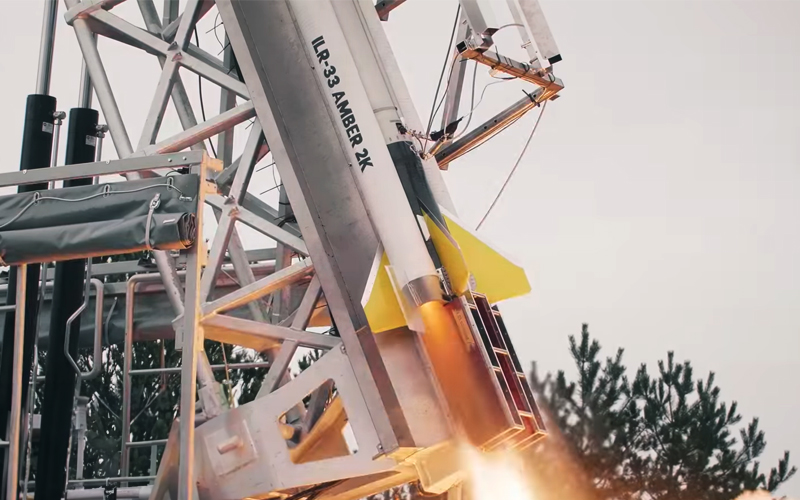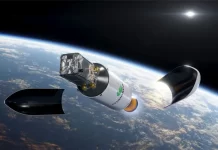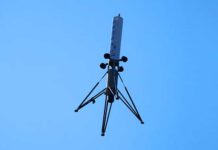
Poland’s Łukasiewicz Institute of Aviation has announced that it will launch its ILR-33 Amber 2K rocket from Norway this month on its first mission to space.
When development of the ILR-33 Amber 2K rocket began, the institute set a goal of developing a rocket that could carry a ten-kilogram payload to an altitude of 100 kilometres at a cost that would allow flight and the payload’s development to be funded through a single research grant.
The 4.6-metre ILR-33 Amber 2K rocket features a core stage powered by a hybrid rocket engine in addition to two 160-centimetre solid-fuel boosters. It is an upgraded variant of the ILR-33 Amber demonstrator, which was launched three times between 2017 and 2019.
An initial low-altitude test of the ILR-33 AMBER 2K rocket was completed from the Air Force Training Centre in Ustka, Poland, in October 2022. In July, the institute aims to attempt the rocket’s first space shot. The flight will be launched from Andøya Space Centre in Norway.
“The test campaign is done at a foreign test range because the impact zone of the rocket stages and systems is large, and for safety reasons, we carry out tests at a location dedicated [to] suborbital launches,” explained the director of the Space Technology Center at the Łukasiewicz Institute of Aviation, Dr. Adam Okniński. “This is also a further test of our cooperation with international partners.”
Following its successful high-altitude test flight, the ILR-33 Amber 2K rocket will begin its operational service. According to an Łukasiewicz Institute of Aviation update, the rocket will be utilized by Polish company Thorium Space for suborbital research missions between 2025 and 2027.
“The planned tests of the rocket in space conditions are an important element in building Polish engineering competencies and developing Polish space rocket technologies,” said the director of the Łukasiewicz Institute of Aviation, Dr. Paweł Stężycki. “Especially since the ILR-33 Amber 2K is also a starting point for the development of advanced technologies for large space rockets, which are currently only available in a few countries in Europe.”




